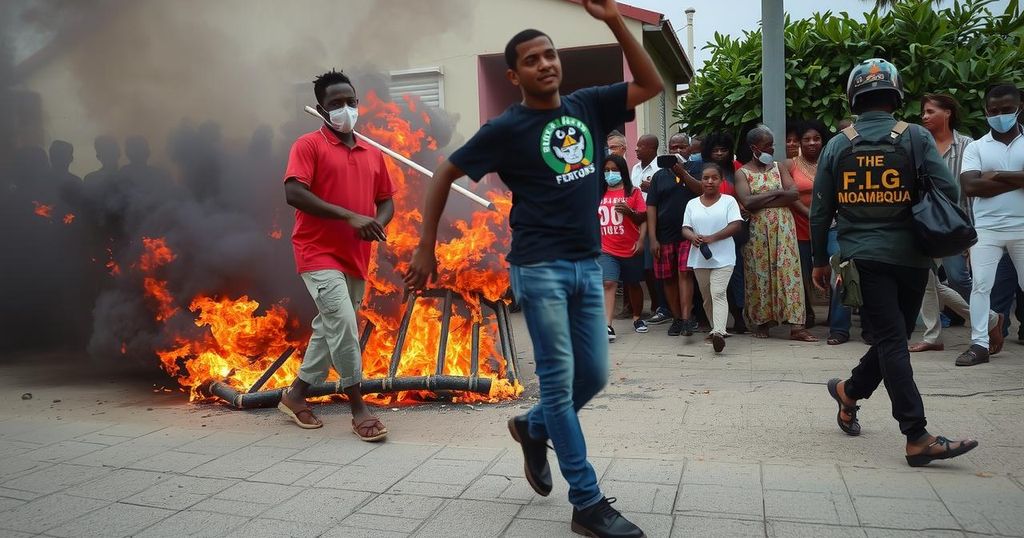Violence in Mozambique following the confirmation of Daniel Chapo’s presidential win has resulted in 151 deaths and numerous injuries. Protests erupted after claims of electoral fraud, leading to significant unrest across the country. Opposition supporters have been accused of vandalizing public property amidst widespread discontent with the electoral results.
The recent post-election violence in Mozambique has resulted in a rising death toll, now reaching 151 individuals since protests commenced on October 21. Following the confirmation of Daniel Chapo’s victory in the controversial presidential elections by the country’s Constitutional Council, violence erupted, with at least 21 people confirmed dead and over 20 injured since the announcement. The interior minister, Pascoal Ronda, reported a total of 236 incidents of serious violence nationwide. The opposition, particularly supporters of exiled leader Venancio Mondlane, have been actively protesting the electoral results, leading to accusations of vandalism, particularly targeting police stations. This unrest reflects deep divisions in the country over the election results, which saw Chapo’s support reduced from an initial reported 71% to 65% by the court.
Mozambique has been experiencing significant unrest following its presidential elections held on October 9. The elections, marred by accusations of irregularities, resulted in the ruling party, Frelimo, declaring their candidate, Daniel Chapo, as the winner. The subsequent confirmation of Chapo’s victory by the Constitutional Council incited protests from opposition supporters, particularly those aligned with exiled leader Venancio Mondlane. This unrest has escalated into violence, highlighting the tensions within the nation regarding the legitimacy of the electoral process. The involvement of state institutions and the response to civil dissent further complicates the situation, showcasing the challenges facing Mozambique’s democracy.
The ongoing violence in Mozambique, which has claimed 151 lives and seen numerous injuries, underscores the severe discontent surrounding the recent presidential elections. As protests continue, the government’s response to dissenting voices may further influence the stability of the nation. The need for addressing the underlying grievances and restoring public confidence in the electoral process remains crucial for Mozambique’s political future.
Original Source: www.aa.com.tr






